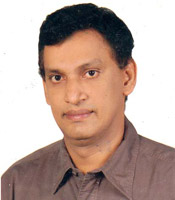“I distrust those people who know so well what God wants them to do, because I notice it always coincides with their own desires”. - Susan B. Anthony
A liberation theology in Islam is an impressive possibility. The emblematic judgment in Haji Ali Dargah case rendered by the Bombay High Court is not one that places the gender rights over the religious rights, as commonly perceived. It has, on the other hand, unveiled the coexistence of both the rights in a given context by demolishing any idea of dissonance between the two. The court has rejected the contentions of the Dargah Trust that tried to justify the ban on women’s entry. The pleas referring to women’s ‘security’ and her ‘impurity’ were not convincing. The contention that “Islam discourages free mixing between man and women” also was turned down by the Bench. More significantly, the defence based on Articles 25 and 26 of the Constitution also could not persuade the court to fence out women from the sanctum sanctorum.
 Kaleeswaram Raj
Kaleeswaram Raj
Article 25 speaks about “freedom of conscience and free profession, practice and propagation of religion”, and Article 26 (b) focuses on the freedom of a religious denomination to manage “its own affairs in the matters of religion“. The court harmoniously interpreted these provisions in tune with the equality clauses in the Constitution i.e. Article 14 (equality before law and equal protection of the laws) and Article 15 (that prohibits discrimination on the ground of sex). The Indian courts, by and large, have not accepted the jurisprudence against religious privileges advanced by western scholars like Brian Leiter. Positive secularism that assimilates religious freedom, “operates as a bridge to cross over from tradition to modernity” as held by the supreme court in Bommai (1994). Bommai further said that “morality under positive secularism is a pervasive force in favour of human freedom or secular living.”
The Bombay high court judgment is brief and at the same time, lucid in terms of legal propositions. It also reflects a radical leap in India’s gender jurisprudence. Its vocabulary is not in any way obfuscating. The judgment takes a rabid pasture without violating the religious doctrine or the constitutional text.
However, to say that Haji Ali Dargah judgment will act as a heuristic for resolving the legal puzzles on women entry elsewhere would be unsafe. Haji Ali Dargah judgment starts on the premise that till 2011-2012 the women were permitted to enter the Dargah. A list of Dargahs, where there are no restrictions was furnished by the petitioner. Thus the present ban, ostensibly, is not supported by any customary law, which the constitution recognizes by way of Article 13 (3) (a). Also the court has found that banning of women is not “essential and integral part” of Islam even when examined in the light of the religious text. In paragraph 31 of the verdict, the court has categorically found that the “verses cited (from the Holy text) do not in any way show, that Islam does not permit entry of women at all, in Dargahs/Mosques”. But in the Sabarimala case, which is now before the apex court, the situation is essentially different. In l’affaire Sabarimala, one will have to labour assiduously to enable the women to come closer to the deity, who is believed to be a ‘Naistic Brahmachari’, the Bachelor God. The temple authority in Sabarimala has solid arguments based on religious beliefs and customs which would better satisfy the “essential and integral part” test, enumerated by the Supreme Court in the famous judgment in Shirur Matt Case (1954).However, the legal battle won at Shani Shivgnapur leading to full access for women, may have a catalytic role in the reformative praxis in future.
The Haji Ali Dargah Judgment also, if upheld in the apex court, (and there are no reasons to think otherwise) will go a long way in fighting the dismemberment of women at least at places akin to the Dargah. Gender equality is to be perceived as a munificence of pluralism, or else, as a nation we would be only harbouring the delusions of being egalitarian.
(Kaleeswaram Raj is a lawyer practising in the Supreme Court of India and High Court of Kerala. He is the author of The Spirit of Law (2012). Email: kaleeswaramraj@gmail.com)




